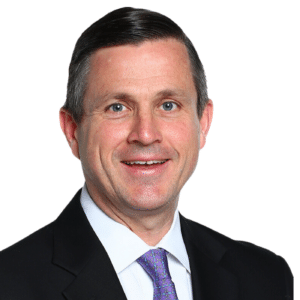This week’s investment soundbite from FundCalibre is with John Delano, co-manager of the Invesco Global Focus fund. John will become lead manager of the fund in June 2023 when Randall Dishman retires. In this interview John explains how he goes about identifying structural themes and then goes on to monetise them.
How do you identify the companies that you invest in?
“We are looking for structural change going on in the world. We do this by going out and meeting companies, understanding what they’re doing and the things that are changing, and reading anything from annual reports to newspapers to industry reports; there’s nothing better than getting more information to see what things are changing, and how, and where customers are moving.
“And some of the ones that we’re looking at right now are themes from cloud computing and medical devices to e-commerce. These have been going on for years, and we think they are going to continue going on for years, creating a very attractive opportunity for investments for the fund.”
Once you’ve identified those themes, how do you go about finding the best companies to invest in those areas?
“It starts with trying to find out how those structural dynamics are being monetised in the world, and finding out where that opportunity lies.
“As an example, in cloud computing, there’s lots of different possibilities; there’s the hardware that goes into it, there’s the hyperscalers [large, cloud service providers] that host it, there’s some of the software applications that go on that. You have to spend the time to understand the individual economics for each business – see which ones are differentiated, and which ones people are willing to pay for. And you’ll also find various software companies that are able to help people move on to hyperscalers and cloud computing. And some of the large players, Microsoft, Amazon, and Google, also are able to do that.
“On the other side, it’s sometimes very difficult to make an opportunity or an economic return when you’re looking at some of the hardware which is less differentiating, which can be more commoditised. It takes time to understanding that, talking to customers, seeing what they value, seeing just how substitutable any single item may be, and then waiting for the right price, because it all comes down to that at the end of the day, for the investments as well.”
Tell us a little bit more about medical devices in your healthcare allocation.
“There are two things that feed into this. One, obviously the world is ageing. We all are aware of that. And as we all age, our bodies start to have one or two more issues than when we were all 20, or at least mine surely does!
“But what you find is that, with the technology that’s come on, we have the ability to fix so many of these issues that come up, and it’s a huge new opportunity and society really values that; it really values the ability to improve quality of life and extend everyone’s life expectancy.
“So, we make massive investments in that. And finding the medical technology companies that are able to monetise that, whether it be Edwards Lifesciences or Thermo Fisher that help contribute to some of this development, are critical and very undervalued, I think, because people miss the idea that this is something that will go on for as far as the eye can see; people use the phrase, ‘demographics is the future that’s already been written’. We realise this, we know we’re going to need more and more of this every year. And there are only a certain number of companies that have the ability and the scale to produce the type of innovation that’s going to be valued by patients, society, [and] governments. So, it has made it a very attractive space.”
Are you more interested in the hardware side of things or the drugs as well? Or is biotech too uncertain an area for you?
“When it comes to the drugs, what’s really great is when you can be invested in the picks and shovels i.e. the businesses that help to develop the drugs, as opposed to having to discover the drugs. If you think about WuXi [Wuxi Biologics (Cayman), Inc.] or Lonza [Group AG] that help to produce the drugs that are so innovative, that’s a great business. To understand and to pick the individual winners from biotech is a whole different dynamic that can add a lot more volatility. It’s been more attractive to find those areas that are producing the drugs or manufacturing the drugs.
“The same applies [when] you think about companies that are producing the materials needed for this or to help identify. Another large position we hold is Illumina [Illumina, Inc.]. It helps you understand the genome, that helps to inform you on what might be a good way to address an illness or a disease. Everything that creates knowledge, that helps us manufacture, that’s where we’re invested and we see the best opportunities.”
Do you find yourself having to read things like Doctors Weekly to see what doctors are talking about, to get an idea as to how useful some of these things would be? Or do you just stick to company reports and accounts?
“Industry type publications or presentations from actual participants in the industry are very, very helpful. Those are the ones who are living it day-to-day, to help you understand where they find value.
“If you’re a doctor and you’re using a new drug or a new procedure, a reader then gets the idea of what’s easy, what patients find helpful, what doctors find helpful, where the friction is. Something can look fantastic on paper – we all know this – but when you go into real life, there’s a few extra hurdles that no one ever brought up before, which you need to be aware of. And you don’t get that simply from reading some general report on a company. You get it more by hearing what participants have to say.”
Your outlook for China seems to have changed in recent months; could you expand on that.
“People tend to get very nervous around any type of political change. Last October you had a number of people very concerned about what the regulatory outlook might be, whether that was covid zero responses, or just overall regulatory environment for industries such as the tech industry. What’s changed is actually people have become more comfortable with what’s happened. We’ve seen the covid zero policies relaxed and we’ve seen more support for a number of industries, and a view that says some of the regulatory adjustments have run their course.
“So, what you’ve really seen is actually everyone else has now felt more comfortable about China. Our positions have actually appreciated greatly over that time, but we have been very consistent in our belief that some of the world’s leading companies are available there. We still hold that there are very attractive opportunities there. You’ve heard the phrase, ‘It’s competition, but you need cooperation,’ and finding a balance between that in these relations sometimes takes a little bit of trial and error to get there. But ultimately that is where this relationship I think ends up; you will have areas where you cooperate, areas where you compete, but you’ll also realise that having a very good dialogue between China and the rest of the world is something that’s beneficial for all.
You will be taking on sole management of this fund in the summer when Randall Dishman retires, will the process change in anyway or what should investors expect going forward?
“Investors should expect continuity. I’ve been working with Randall for over 10 years and we’ve had a fantastic working relationship, and the underlying philosophy is something that we share. Perhaps there will be a slightly different weighting on some names versus the others, based on my evaluation than his, but when you think about, what is [the] structural growth that’s going through the economy and the world, [and] where do we want to be exposed to that? How comfortable are we with the concentration within the portfolio, to express those views, to monetise that? Those principles will not change whatsoever. I think you’d be looking at a very similar portfolio and process, post my taking over sole responsibility.”
Listen to the full interview below:
[Main image: christian-lue-mJmYluOzx6g-unsplash]




























